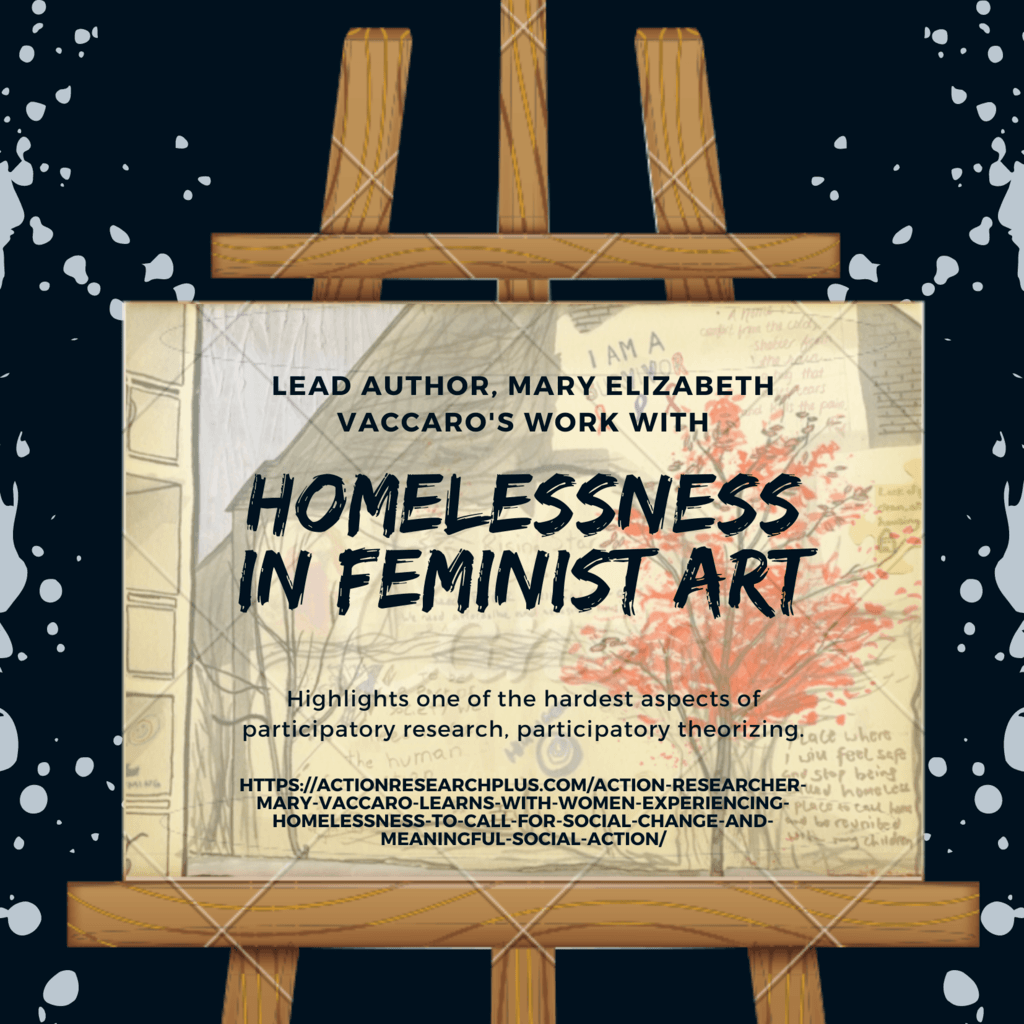Learning from Homelessness in Feminist ART
Lead author, Mary Elizabeth Vaccaro writes that ‘reflecting on ‘doing’ participatory data analysis with women experiencing long-term homelessness,’ shines a light on one of the hardest aspects of participatory research, participatory theorizing. This paper then considers how we can transform what we know about women’s experiences of homelessness, into a call for social change and meaningful social action.
Researchers from community-based and participatory paradigms share a commitment to meaningfully involve those directly impacted by the research, in all stages and phases of research. Yet, oftentimes the tedious, complex, but incredibly important process of ‘data analysis’ is left up to academic research team members.
The paper draws on lessons learned about participatory analysis, during a feminist participatory action research project. Those involved uses arts-based and narrative methods, to explore the experiences and housing preferences of seventy women experiencing long-term homelessness.
Findings from the [in]visible study echo existing research on gender-based homelessness, call attention to disproportionate experiences of violence, disruptions in mothering and lives complicated by significant health concerns, mental health and addiction.
Using a methodological approach that Vaccaro terms, ‘arts-based think tanks’, the work describes a process that uses art-making and dialogue to involve participants in making meaning of emerging themes and research findings. By drawing on the narratives and art-work of women, this paper shows how meaningful participatory analysis can transform ‘data’ into tangible social change outcomes, and in the case of this paper, bring about key recommendations for developing better models of housing and support.
This paper offers a transformational praxis for ‘doing’ participatory analysis with communities who are highly marginalized and too often excluded from this phase of the action research process. The methodological framework introduced in this paper offers some exciting possibilities for participatory researchers, who are interested in using ‘art’ as a tool for co-theorizing in participatory research.
We invite you to learn more by reading the full article offered with free 15 day access i.e., without paywall, beginning now!
DOI for future reference: https://journals.sagepub.com/doi/full/10.1177/1476750320974429

ARJ Associate Editor Marina Apgar and author Mary Vaccaro discuss the article on Homelessness & Feminine ART on this video snippet
- Three stories we did not tell about NGO-Community Collaboration in Uganda - April 18, 2024
- Podcast on PAR Peacebuilding in Colombia - April 15, 2024
- Julian Hauer’s Workshop– thinking wider and deeper - April 15, 2024
